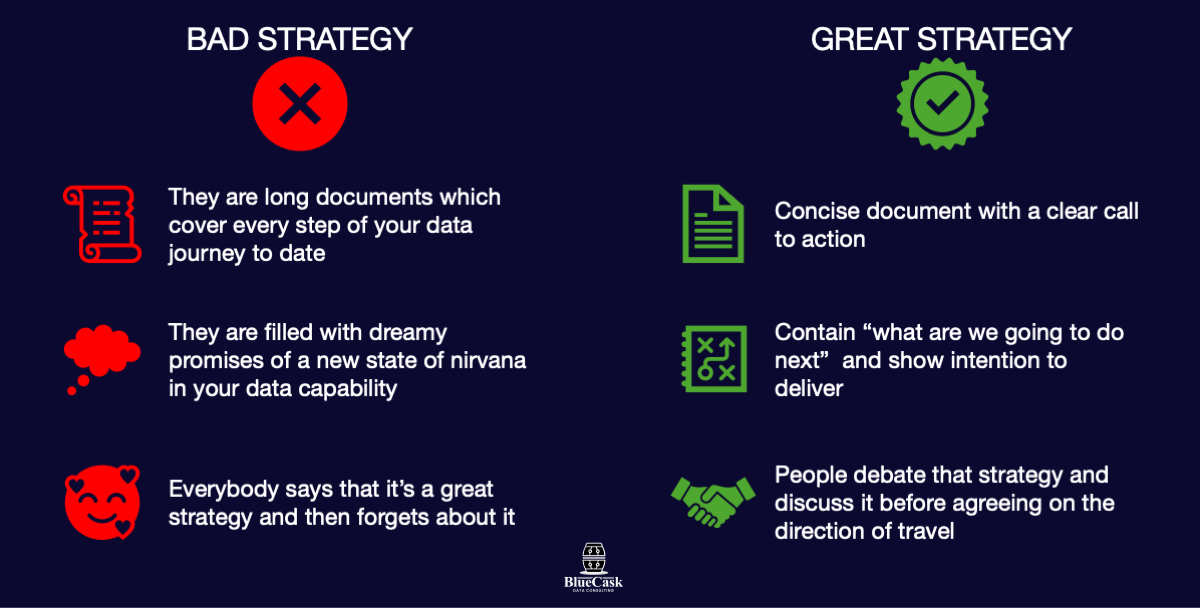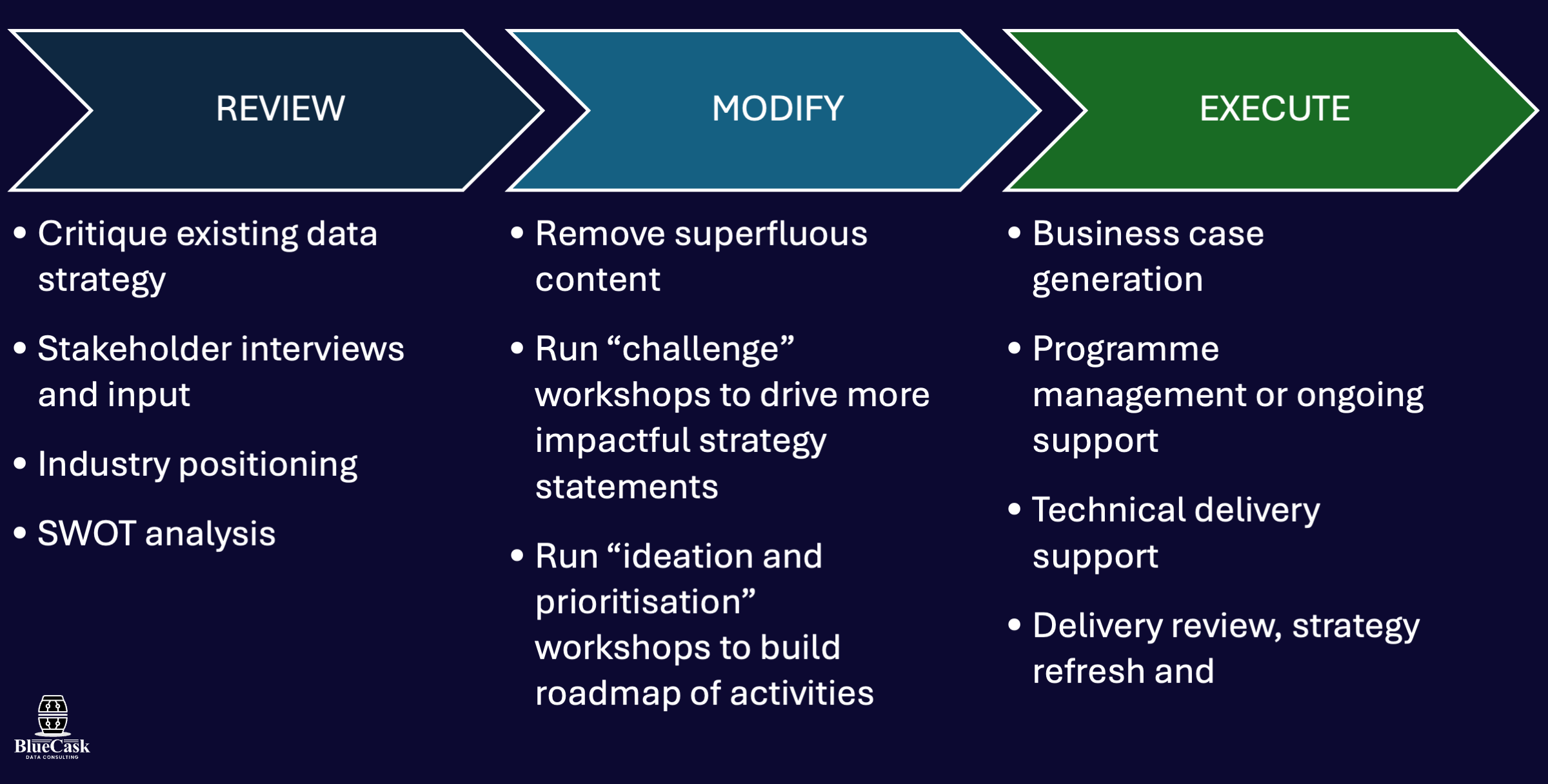Successful Data Strategies
Can’t see the wood for the trees? Step back and go from lame data strategy to GREAT data strategy

How many times has a consultancy delivered you 30 powerpoint slides of data strategy and left you feeling underwhelmed? It’s a common problem where the “strategy” becomes the defining document for the team and loses track of its key purpose.
Its just too generic and BIG
Take a look at the contents of your data strategy. Does it contain lots of great graphical depictions of what you are going to do? Does it talk about what it’s going to feel like when you’ve implemented everything?
The chances are, the strategy contains 95% the same stuff as everybody else’s. What do I mean by that? Well most strategies talk about making sure that the organisation is data driven and lay out the common set of capabilities required to be data driven.
“We are going to implement data ownership, build a data platform, enable citizen data scientists to rule the world!”
I recommend that you put all of those great graphics and vision statements into a “Data Vision” document. While you are editing your strategy, hide all of the “telling the story of the data team to date” and see what have to got left over. Is what you’ve got a strategy?
When is a strategy not a strategy?
Many strategies fails on the most basic level. Does it tell you what you are going to do? And, more importantly, does it tell you what you are not going to do?
“The essence of strategy is choosing what not to do.” - Michael E Porter, Harvard Business Review, November 1996.
Michael excellent paper talks about business strategy, but some of the thoughts are really helpful if you are struggling with your data strategy.
Another way of thinking about this is the following. Take one of your strategy elements and test to see if the opposite is a viable choice. The opposite of “we are going to be data driven” doesn’t sound like a great thing to say if you are in a data team (“we are going to ignore what the data tells us”). The opposite of “we are going to value data quality” is equally worrying.
Saying “we are going to focus our data quality efforts on customer data” does sound like you are making a choice. Of course, people could argue with you about that, and advocate focusing on supplier data first. That would be a great discussion to have, and will make your data strategy more robust if you have that conversation.

So what could it say?
As mentioned above, the data strategy could talk about data quality priorities. But what else could it say?
- Data products or data projects - having an approach to how you manage work;
- Buy vs build - are you going to buy algorithms or build them from scratch?
- Supplier strategy - having a number of smaller specialist suppliers or a larger one stop shop;
- Organising your analytical teams - by business area (eg finance or HR) or by type (eg customer value, optimisation);
- Data governance - which data domains are you going to roll out data ownership and stewardship to first?
These are all valid questions to answer as part of your strategy.
Don’t let your bloated data strategy get in the way
If you have reviewed your data strategy and found it lacking, what should you do? First, don’t panic… keep doing useful work. Having a bad data strategy (or no strategy at all) shouldn’t stop you carrying on with the good work that you are currently doing.
Secondly go through a process of review, modify and executing a new strategy (see the graphic below for some ideas on what that might look like.

This process will be really helpful to engage with your stakeholders and team. Both sets of people will feel connected to the strategy and the next steps. You do have to be careful with the messaging on this review and update though, sometimes stakeholders would rather you get on with delivery rather than spending time reviewing your data strategy.
Make it part of your business as usual
You really should make reviewing and updating your strategy an ongoing task, rather than a once every three year, drop everything consultant fest. Take a specific part of the strategy and review and update it. Let your team own making the changes to their part of the strategy and turn it into something that is a normal as a post sprint retrospective.
If the team own their part of the strategy you’ll find that in their day to day work they are working towards the strategic goals. You’ll be surprised that they don’t ask “what should I do next” and rather will come back with “we are doing this next because its right for the business and right for our strategy”.
Get a small amount of useful help
And, because I would say this, get in a little bit of help from people who can provide friendly challenge and external perspectives.
Do you need to review and refresh your data strategy? Get in touch!

